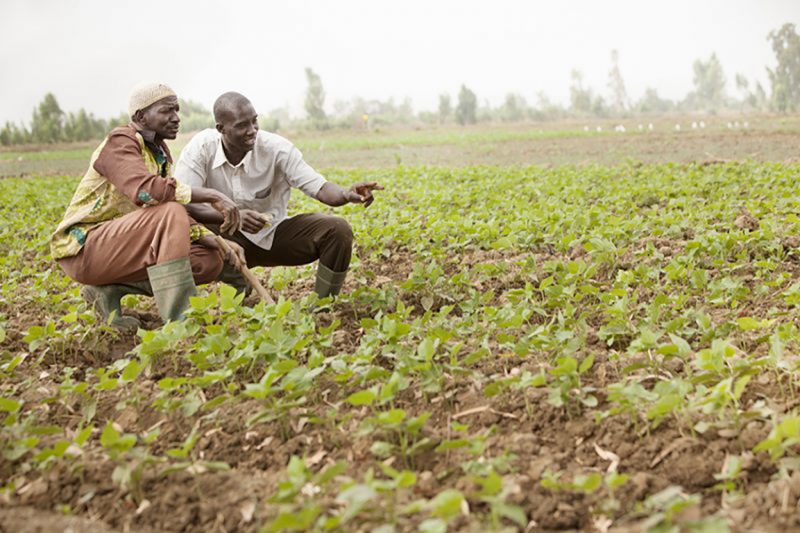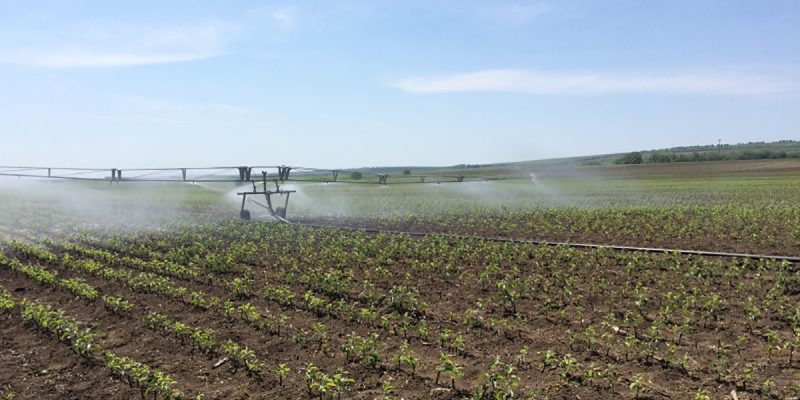
Jake Lyell for MCC
Onion farmer Yelemou Dramane (left) talks with agricultural trainer Zou Oumarou (right) in a field in Di Department, Burkina Faso.
To mitigate these evaluation challenges, MCC’s Monitoring and Evaluation (M&E) team is researching innovative techniques to better measure key outputs and outcomes of our agriculture and irrigation investments. Traditionally, MCC has measured results in this sector through large household surveys that take place before the project begins to understand the starting point, shortly after the project ends to measure immediate results, and several years after the project ends to measure long-term outcomes. However, the nuances of agriculture investments, such as the year-to-year natural variation in yields and prices, often make reliable measurement of key outcomes—such as improved livelihoods—difficult with our current approaches.
True to our learning and transparency-focused model, in September 2019 MCC hosted an Agriculture and Irrigation Evaluation Day of Learning to explore the latest technologies in unbiased and precise measurement of agriculture. At this all-day, public event, we discussed preliminary findings and lessons learned from our Moldova, Senegal and Burkina Faso midline evaluations. We then used these evaluations to inform discussions with leading experts about improving evaluation methods going forward by incorporating things like satellite imagery and remote sensing to expand our results-measuring toolkit.

MCC
Irrigation sprinklers water a young vineyard in Floresti District, Moldova. MCC's Moldova Compact upgraded irrigation systems in the country.
- Better ways of collecting data on costs and quantities of inputs such as farm labor and the value of production through rapid surveys;
- Understanding if remote sensing or other approaches could improve crop identification and production data or provide signals that could trigger other data collection efforts; and
- Data collection approaches that might be helpful for non-agricultural income sources and should be considered to capture direct and indirect program effects to ensure valid counterfactual comparisons.
MCC is now working to implement these ideas to determine if they can augment our measurement toolkit. These new tools are an exciting way to track progress and feed into course-correction during project implementation, and could even be used by beneficiaries to improve their farming practices. Now comes the hard and exciting work of putting these ideas into practice at MCC and with our partners!

